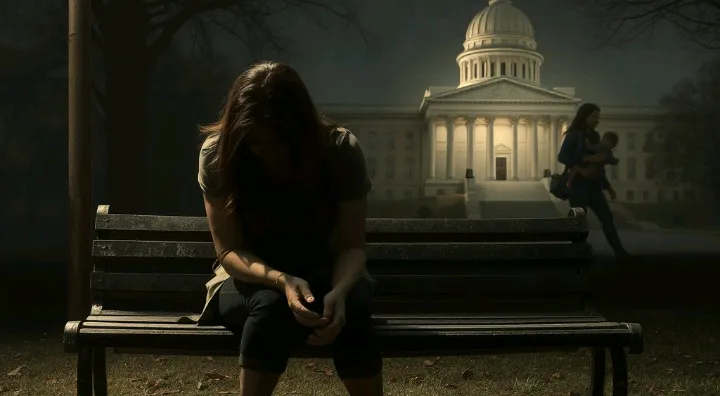call for a Action
Lily’s tiny face was flushed, and her cries had quieted into weak whimpers. The receptionist at the clinic immediately called for help, but not the kind Jasmine was hoping for. An ambulance arrived along with a social worker, who took one look at Jasmine’s exhausted face and labeled her a neglectful mother.
That night, Lily was taken into foster care. Jasmine begged them to understand her situation—that she was trying her best, that she loved her daughter more than anything. But her pleas fell on deaf ears. The same system that had failed her as a child was now tearing her child away.
Chapter 3: The Weight of the Past
For young mothers like Jasmine and Maria, the system didn’t see individuals with potential; it saw patterns. Growing up in foster care, they were marked by the scars of their childhoods—scars that the system used as justification to predict their future failures.
It didn’t matter that Maria had spent years working on her mental health or that Jasmine had enrolled in parenting classes the moment she found out she was pregnant. Their pasts were held against them, as if being a foster child automatically disqualified them from being good parents.
But what the system refused to acknowledge was that these young women were products of its own failures. How could they be expected to thrive when they had been denied the very support and stability they needed?
Social services often acted more like judges than advocates, quick to point out every misstep without offering real solutions. Jasmine was told she...
That night, Lily was taken into foster care. Jasmine begged them to understand her situation—that she was trying her best, that she loved her daughter more than anything. But her pleas fell on deaf ears. The same system that had failed her as a child was now tearing her child away.
Chapter 3: The Weight of the Past
For young mothers like Jasmine and Maria, the system didn’t see individuals with potential; it saw patterns. Growing up in foster care, they were marked by the scars of their childhoods—scars that the system used as justification to predict their future failures.
It didn’t matter that Maria had spent years working on her mental health or that Jasmine had enrolled in parenting classes the moment she found out she was pregnant. Their pasts were held against them, as if being a foster child automatically disqualified them from being good parents.
But what the system refused to acknowledge was that these young women were products of its own failures. How could they be expected to thrive when they had been denied the very support and stability they needed?
Social services often acted more like judges than advocates, quick to point out every misstep without offering real solutions. Jasmine was told she...




